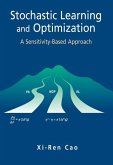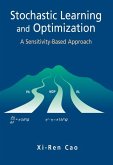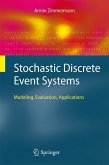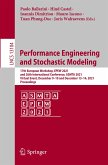During the last decade, the area of stochastic max-plus linear systems has witnessed a rapid development, which created a growing interest in this area. This book provides a thorough treatment of the theory of stochastic max-plus linear systems. Max-plus algebra is an algebraic approach to discrete event systems (DES), like queuing networks that are prone to synchronization. Perturbation analysis studies the sensitivity of the performance of DES with respect to changes in a particular system parameter.
The first part of the book addresses modeling issues and stability theory for stochastic max-plus systems. The second part of the book treats perturbation analysis of max-plus systems: a calculus for differentiation of max-plus systems is developed. This calculus leads to numerical evaluations of performance indices of max-plus linear stochastic systems, such as the Lyapunov exponent or waiting times.
The first part of the book addresses modeling issues and stability theory for stochastic max-plus systems. The second part of the book treats perturbation analysis of max-plus systems: a calculus for differentiation of max-plus systems is developed. This calculus leads to numerical evaluations of performance indices of max-plus linear stochastic systems, such as the Lyapunov exponent or waiting times.
From the reviews: "This book looks at applications of the max-plus algebra in two areas of applied probability, linear stochastic systems and perturbation analysis ... . In all ... this book is, without a doubt, an important contribution to the literature. ... it will be widely read by people working in the field." (Jonathan Golan, ACM Computing Reviews, Vol. 49 (2), February, 2008)








